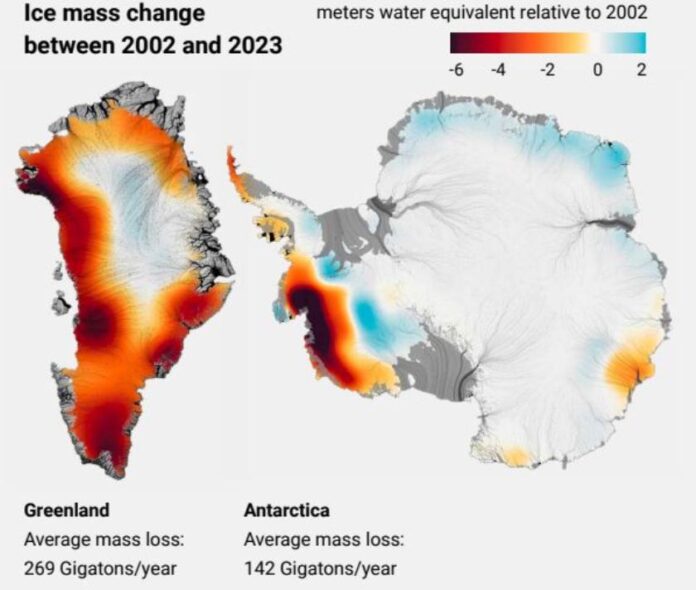As climate change intensifies, the United Nations Environment Programme (UNEP) has issued a stark warning in its Frontiers 2025 Report, emphasizing how extreme heat, melting glaciers, and toxic floods are creating compounding threats to both human health and ecosystems.
The report, titled The Weight of Time – Facing a New Age of Challenges for People and Ecosystems, outlines how a warming planet is accelerating systemic risks that disproportionately affect vulnerable populations and heighten the risk of irreversible environmental damage.
Heat Waves: A Deadly New Normal
Extreme heat events, once considered anomalies, are becoming a persistent feature of the global climate. In 2025 alone, countries including China, Japan, India, Europe, and the United States have endured prolonged spells of scorching temperatures. Older persons, especially in urban areas of low- and middle-income countries, are at the highest risk. According to the report, heat-related deaths among people aged 65+ have increased by 85 percent since the 1990s, a trend exacerbated by air pollution, lack of green spaces, and poor infrastructure.
UNEP Executive Director Inger Andersen said: “Heat waves are among the most frequent and deadly impacts of climate change. We must be prepared for the risks these impacts pose, especially for society’s most vulnerable.”
The report urges cities to transform into climate-resilient, pollution-free, and accessible spaces. Urban strategies recommended include planting more vegetation, redesigning city layouts for better airflow and shade, investing in community-based disaster preparedness, and ensuring that older populations have timely access to climate information.
Melting Glaciers and Ancient Pathogens
Beyond heat, the melting cryosphere — which includes glaciers, snowpacks, sea ice, and permafrost —poses another alarming threat: the reawakening of ancient, dormant microorganisms. These so-called “zombie microbes,” including bacteria, fungi, and viruses long trapped in ice, could be released as global temperatures rise beyond 2°C above pre-industrial levels.
This phenomenon not only increases the risk of unknown pathogens but may also accelerate antimicrobial resistance, threatening human health and ecosystems alike. Over 670 million people live in or depend on cryospheric regions, placing their water sources, agriculture, and health at risk.
To slow this process, the report calls for aggressive greenhouse gas reductions, including curbing black carbon emissions from diesel, open burning, and wildfires. It also urges limiting tourism in fragile frozen zones and investing in microbial biodiversity research.
Toxic Floods and Chemical Remobilization
Climate change is intensifying flooding, which now carries an underrecognized hazard: the resurfacing of banned toxic chemicals. Once buried in sediments, these substances can be reintroduced into water systems and urban environments during floods.
The report warns of legacy pollutants — such as those phased out decades ago — being stirred up by floodwaters, contaminating food supplies and threatening health. Key prevention measures include:
Modern drainage infrastructure
Nature-based solutions, like sponge-city models
Monitoring pollutants in high-risk zones
Evaluating economic impacts of remobilized toxins
Ageing Dams: Infrastructure Under Pressure
A final warning centers on the growing risk from ageing dams. As climate-related stresses increase, many older dams are becoming unsafe or obsolete, posing threats to both human settlements and river ecosystems. The report highlights the emerging global trend of dam removal, particularly in Europe and North America, where restoring natural river flows has boosted biodiversity and reconnected aquatic habitats.
This shift is seen as part of broader ecosystem restoration efforts, aligned with the UN Decade on Ecosystem Restoration.
Urgency Meets Opportunity
The Frontiers 2025 Report reinforces a key message: climate change is not a distant or abstract issue — it is unfolding now, reshaping health, safety, and biodiversity across the globe. But alongside each risk, UNEP outlines actionable pathways for adaptation and restoration.
With the world’s ageing population growing, the cryosphere in rapid retreat, and floods unlocking hidden dangers, the report calls for a unified global response rooted in science, equity, and sustainable development.
Baburajan Kizhakedath

